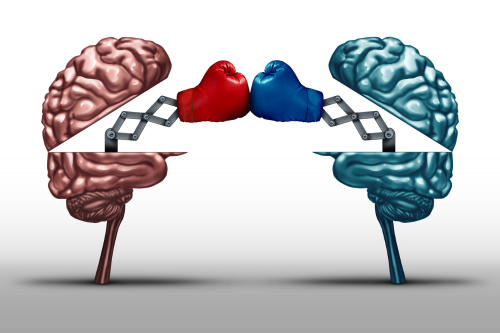Are you struggling to understand the difference between hard skills and soft skills?
Don’t worry, you’re not alone. Many people find it difficult to differentiate between the two. Hard skills are the technical abilities that you acquire through training and education. Soft skills are the personal qualities that help you communicate and work effectively with others. Think of hard skills as the cake and soft skills as the frosting. You need both to make a delicious cake, but the frosting is what makes it truly special.
Employers today are looking for candidates who possess both hard and soft skills. While hard skills are important for performing specific tasks, soft skills are crucial for collaborating with others and building positive relationships with clients and colleagues. In fact, a recent study found that 77% of employers believe that soft skills are just as important as hard skills when it comes to hiring decisions.
So, if you want to stand out from other applicants, it’s important to highlight both your technical abilities and your personal qualities in your resume and cover letter.
Whether you’re a programmer, nurse, accountant, or marketing specialist, possessing both hard and soft skills will help you succeed in your career. So, take some time to reflect on your strengths and weaknesses in both areas. Do you need to brush up on your technical skills, or do you need to work on your communication and empathy? By investing in both your hard and soft skills, you’ll be well on your way to achieving your career goals.
Hard Skills vs Soft Skills
When it comes to job hunting, you might think that only your technical knowledge matters. However, employers are also looking for candidates with strong soft skills. So, what’s the difference between hard skills and soft skills?

What are Hard Skills?
Hard skills are often the first thing that hiring managers look for on a resume. They are the technical abilities and knowledge you have acquired through education, training, or experience. They’re the skills that you can learn and measure, and they’re essential for performing specific tasks. Examples of hard skills include:
- Proficiency in a foreign language
- A degree or certification
- Typing speed
- Machine operation
- Computer programming
Hard skills are like tools in a toolbox. You need the right tool for the job, but you don’t need every tool in the toolbox. So focus on developing the hard skills that are most relevant to your career goals and the job you’re applying for.
What are Soft Skills?
Soft skills, on the other hand, are subjective skills that are much harder to quantify. These are the personality traits and behaviours that help you work effectively with others. Examples of soft skills include:
- Communication
- Leadership
- Time management
- Adaptability
- Creativity
Soft skills are essential for building strong relationships with colleagues and clients. Employers want to hire candidates who can communicate effectively, work collaboratively, and adapt to changing circumstances.
So, when preparing for a job interview, don’t just focus on showcasing your technical expertise. Make sure to also highlight your soft skills and how they can benefit the company. Remember, it’s not just what you know, but how you work with others that can make all the difference in landing your dream job.

5 Ways to Develop Hard Skills
Congratulations, you’ve decided to develop your hard skills! That’s great news, because hard skills are the technical knowledge and abilities that are specific to your job. Here are some tips to help you train and develop your hard skills:
1. Identify the skills you need
Before you start training, you need to identify the specific hard skills you need. This will depend on your job and your career goals. For example, if you work in data analysis, you might need to develop your skills in programming languages like Ruby or database management. On the other hand, if you work in project management, you might need to develop your skills in analysis and data mining.
2. Find training resources
Once you’ve identified the skills you need, you need to find training resources. This might include online courses, books, or workshops. Look for resources that are specific to the skills you want to develop and that are taught by experts in the field.
3. Practice, practice, practice
Developing hard skills takes practice. Once you’ve found training resources, make sure you practice what you’ve learned. For example, if you’re learning a programming language, practice writing code. If you’re learning project management, practice creating project plans and managing budgets.
4. Get certified
Getting certified is a great way to demonstrate your proficiency in a particular hard skill. Look for certification programs that are recognized in your industry. For example, if you work in computer programming, you might want to get certified in a specific programming language.
5. Learn a foreign language
Learning a foreign language might not seem like a hard skill, but it can be a valuable asset in many industries. For example, if you work in SEO/SEM marketing, being proficient in a foreign language can help you target international markets.
5 Ways to Develop Soft Skills
So, you want to improve your soft skills? Great! It’s not as difficult as you might think. Developing soft skills is all about practice and self-reflection. Here are some tips to help you get started:
1. Work on Your Communication Skills
Communication is key in any workplace. To improve your communication skills, try practicing active listening, being clear and concise in your messages, and asking questions to make sure you understand what others are saying.
2. Cultivate Empathy
Empathy is the ability to understand and share the feelings of others. To cultivate empathy, try putting yourself in other people’s shoes and imagining how they might feel. This can help you better understand their perspective and communicate more effectively.
3. Be Positive and Open-Minded
Employers love employees who have a positive attitude and are open-minded. To develop these traits, try focusing on the good things in your life and being grateful for what you have. Also, try to keep an open mind and be willing to consider new ideas and perspectives.
4. Develop Critical Thinking Skills
Critical thinking is the ability to analyze and evaluate information to make informed decisions. To develop critical thinking skills, try asking questions, analyzing data, and considering multiple perspectives before making a decision.
5. Be Adaptable and Organized
Being adaptable and organized are important traits in any workplace. To develop these skills, try creating a plan or schedule to help you stay on track and be prepared for unexpected changes.
Showcasing both hard and soft skills on your resume is essential for standing out. While hard skills demonstrate your technical abilities and expertise, soft skills reveal your capacity to collaborate, communicate, and adapt—traits highly valued by employers. By effectively highlighting both, you present yourself as a well-rounded candidate equipped to excel in any professional environment. Remember, a balanced resume not only gets you noticed but also paves the way for lasting career success!




